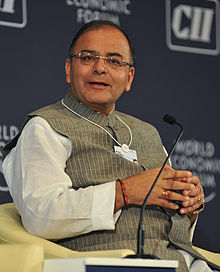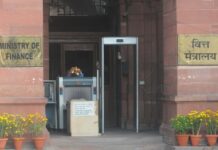New Delhi–A Central Board of Direct Taxes (CBDT) committee on taxation of e-commerce has suggested an “Equalisation Levy” of between 6-8 percent for business-to-business digital transactions, as per its report made public on Monday.
The committee had already submitted, in February, its report, which had formed the basis of Finance Minister Arun Jaitley’s Budget 2016-17 proposal for an equalisation levy of 6 percent in order to tax income accruing to foreign e-commerce companies from India.

“The committee included officers of the Central Board of Direct Taxes, representatives from the industry, the Institute of Chartered Accountants of India and tax experts,” said a finance ministry statement.
The committee has suggested that the levy be imposed on the amount paid to a non-resident by an Indian resident for specified digital services. It also suggested that this levy should not be a part of the Income Tax Act.
The specified services would include online advertising or any services, rights or use of software for online advertising, including advertising on radio and TV, designing, hosting or maintenance of websites, digital space for website, e-mails, blogs, facility for online sale of goods or services or collecting online payments.
It would also include use or right to use or download online music, online movies, online games and online software applications accessed or downloaded through the Internet or telecommunication networks.
The commitee has suggested introduction of the tax based on the Base Erosion and Profit Shifting (BEPS) principle earlier endorsed by G20 countries and the Paris-based Organisation for Economic Cooperation and Development (OECD).
The budget for the next fiscal has proposed that a person making payment to a non-resident, without a permanent establishment, exceeding in aggregate Rs.1 lakh in a year for online advertisement, will withhold tax at 6 percent of the gross amount paid as an equalisation levy. The levy will only apply to business-to-business transactions.








